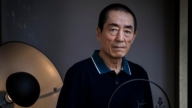【新唐人2011年2月10日讯】中国社科院教授于建嵘,在微博上设立的“随手拍照解救乞讨儿童”,打击拐卖儿童行动,短短二星期获得9万多网民的回应,目前通过网民上传的照片,已经有6名儿童获救。2月8号在微博上更直播了其中一对父子相认的场面,现场激动万分,这个消息几乎成了当天所有中文媒体的头条报导。
“文乐!文乐!我看到了,是我们的儿子啊。”
2月8号下午,湖北籍男子彭高峰终于在江苏邳(音:批)州,见到了失踪三年,如今已经7岁的儿子﹣彭文乐。这场解救行动由香港《凤凰周刊》记者部主任邓飞一路拍摄,并在微博上直播,鼓舞了许多人。
今年1月中旬,中国社科院农村发展研究所教授于建嵘发起了这次微博“打拐”行动,这个话题迅速在微博上获得了48万多条相关信息的回应。《凤凰周刊》的邓飞同时号召“微博打拐志愿团”,将范围进一步延伸。
现年33岁的彭高峰,就是通过微博网友6000多次的转发,最终找到了他的宝贝儿子。据报导,这是解救儿童网站开通以来,第6个被解救的孩子。
微博的力量,让许多失踪儿童的家长,多了一份希望。
山西失踪儿家长冯建林:“因为现在微博面特别广,很多丢失孩子的通过微博发出去,信息面特别广,了解的人会很多的。”
武汉失踪儿家长张学红:“听到这个消息,我感到关心我们的人愈来愈多,那我们找孩子也更加有信心。”
虽然“随手拍照解救乞讨儿童”活动获得多方的响应,但中国知名的文化评论人王小山提出了顾虑。他担心这对被拍的孩子可能带来危险,也可能让人口贩子更快转移孩子们。
根据英国《观察家杂志》报导,在中国,平均每天有192名儿童失踪;另据一些专家的估计,目前中国每年有20万的失踪儿童,其中能够被找回来的只有0.1%。这些失踪儿童可能是卖给别人收养,也有可能被人活体摘器官贩卖,或者当成黑童工,或是成为卖淫的工具。
今年中国新年期间,广东佛山禅城区祖庙路上,出现十多名儿童在路边行乞,有些孩子身体已有残缺。不禁令人怀疑,在优生的计划生育体制下,哪来那么多残疾儿童?而且都成了乞丐?网友们揣测,这些儿童原本是健康的,被人贩子拐卖后,遭人弄成残废,成为黑社会的赚钱工具。
《新纪元周刊》报导,一直致力推动为失踪儿童立法的彭高峰曾表示,痛恨人贩子的同时,也痛恨麻木不仁的政府。目前法律规定,买方没有罪,等于是提供市场给无业游民拐卖儿童。
新唐人记者李庭、梁欣、朱娣综合报导。
Microblogs combat children trafficking with 6 children saved
Prof. Yu Jianrong at Chinese Academy of Social Sciences
set up a micro-blog to combat child trafficking.
Over 90,000 netizens responded in two weeks.
6 trafficked children are saved via photos posted online.
A touching scene of a father reuniting with his son
was broadcasted live on micro-blogs on Feb. 8.
It became the headline of almost all media on that day.
Wenle! Wenle! I have seen you. It is our son.
On Feb. 8, Peng Gaofeng, a resident of Hubei,
eventually reunited with his son in Pi Zhou, Jiangsu.
The 7-year-old Peng Wenle has been missing for 3 years.
Deng Fei, director of journalist department at Hong Kong’s
Phoenix Weekly filmed the whole process and
Broadcasted live on his micro-blog, encouraging many.
http://www.dw-world.de/dw/article/0,,14824168,00.html
In mid Jan. 2011, Chinese Prof. Yu Jianrong initiated
this micro-blog movement to combat child trafficking.
The topic quickly attracted over 480,000 responses.
Meanwhile, Deng Fei from Phoenix Weekly called to
form an anti-child trafficking volunteer group
to expand the scope of their efforts.
Peng Gaofeng, 33, eventually found his beloved son
Peng Wenle, via microbloggers’ over 6,000 postings.
It is reported that he is the 6th child saved
since the establishment of this website.
The power of micro-blogs gives new hope to
many parents that lost contact with their children.
Feng Jianlin, a parent of a missing child in Shanxi:
Due to the wide coverage of micro-blogs,
the messages can reach many people via micro-blogs.”
Zhang Xuehong, a parent of a missing child in Wuhan:
After hearing the news, we feel more and more
people care about us, which increased our confidence.
http://www.dw-world.de/dw/article/0,,14824168,00.html
Despite a wide response to the child-saving movement,
Wang Xiaoshang, a well-known cultural commentator
was concerned with the potential danger of it.
i.e., this would prompt the traffickers to transfer
the children elsewhere more quickly.
According to UK’s Observer magazine, in China,
192 children go missing every day on average.
Some experts estimated, 200,000 children go missing
every year in China, with only 0.1% of them found.
These children could be adopted by somebody else,
became victims of live organ harvesting, underground
child labor or used for prostitution and pornography.
Rumor has it that the reason behind the large number
of missing children is the strict family planning policy.
This made the people that want more children
to buy children rather than risking a 2nd pregnancy.
Child trafficking became rampant in China because of it.
At Chinese New Year, over 10 child beggars appeared
on roads to a Buddhist tourist attraction in Guangdong.
Some of these children were missing limbs.
Where are these handicapped children from?
How could all of them become beggars?
Netizens believe, these children were healthy,
but they were disabled during child trafficking
and consequently became money makers for mafia.
New Epoch Weekly reported, Peng Gaofeng,
who advocates for legislation for missing children, said,
he hated indifferent authorities and traffickers equally.
Current Chinese laws stipulate that
purchasers of the trafficked children are not guilty,
which provides markets for child trafficking.
NTD reporters Li Ting and Liang Xin





























